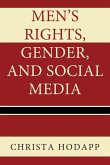Although what we now call "analytic philosophy" has been around at least since the turn of the twentieth century, it wasn't until the latter half of the twentieth century that it became the dominant mode of philosophizing in the Western world. In Race, Gender, and the History of Early Analytic Philosophy, Matt LaVine argues that the changes associated with this shift from early analytic philosophy, a revolutionary movement, to later analytic philosophy, the hegemon, have not been sufficiently recognized. While a significant portion of the analytic philosophy of the late 1900s was apolitical and conservative, LaVine argues that there is much to gain by thinking of early analytic philosophy in relation to liberatory and emancipatory political aims. In particular, there is great potential in bringing together inquiry into critical theories of race and gender with inquiry into analytic philosophy. LaVine supports this idea by discussing the philosophy of language and logic in relation to the Black Lives Matter movement, the objectification of women, and more. Furthermore, LaVine argues there is more precedent for this type of work in the history of early analytic philosophy-in particular, in the work of G.E. Moore, Susan Stebbing, Rudolf Carnap, and Ruth Barcan Marcus-than is traditionally recognized.








